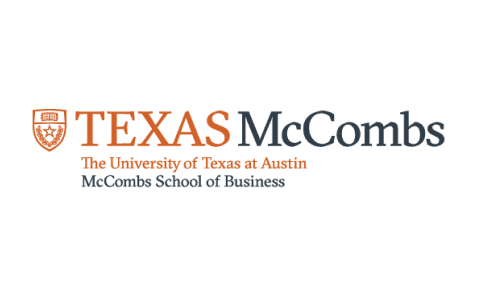Marketing Foundations
Enroll now and embark on your journey to marketing expertise. Unlock the key to marketing success with our free course on Marketing Foundations. Gain insight on how to effectively connect and attract your ideal audience.

Ratings
Level
Learning hours

Learners
Skills you’ll Learn
About this course
If you want to build your career in Marketing, you need to have a solid fundamental base to move forward. This foundational course on Marketing covers some basic building blocks of marketing that build up an overall business strategy. The course provides an understanding of marketing mix, marketing strategy, and the product life cycle. It explains how to analyze customer value and assess customer satisfaction & loyalty.
Throughout this course, you will examine and understand each component of the marketing foundations and get ready for future entrepreneurial activities to have a successful career in Marketing.
Great Learning offers multiple Management courses that make you proficient in Marketing and other management skills to excel in your career. Earn an online MBA Degree in the well-designed MBA Degree course by Great Learning and Jain University. Great Learning also provides dedicated career services that transform the career of our learners. Check out our Online Management Courses today.
Course Outline
This module provides a comprehensive overview of the marketing concept and its various definitions.
This module delves into the topic of the marketing mix, including the creation of a cohesive mix and the 4Ps and 4Cs of marketing.
This module gives an overview on marketing strategies and product lifecycle with examples.
This module talks about customer value and determinants of customer value.
This module talkies about satisfaction and loyalty and how how companies can deliver them.
What our learners enjoyed the most
Skill & tools
61% of learners found all the desired skills & tools
Ratings & Reviews of this Course
Frequently Asked Questions
What is the concept of marketing?
The concept of marketing is to simply identify the needs of the consumer and then produce the goods and services to satisfy the needs of the customer and, along with this making profit for the company or organization.
What do you learn in introduction to marketing?
The core concepts that you will learn in the introduction to marketing is as follows-
-
Market Research
-
Importance of market research
-
Importance to strategy
-
Brand strategy
-
Pricing
-
Integrated marketing communication
-
Social media strategy
-
To develop a basic customer segmentation system
-
To understand the psychology of the consumer decision making
-
To develop the pricing strategies that maximize profitability
-
To define the appropriate channel systems that go to market efforts.
-
To understand how marketing metrics can benefit your business or your organization.
Is introduction to marketing hard?
Yes, introduction to marketing is hard because marketing is amongst the most difficult majors as it is all related to data collection, analysis, learning, and how you can develop effective communication, marketing strategies, and at last, the four P's and so much more.
What are the objectives of marketing?
The main objectives of marketing is to achieve customer satisfaction as well as to maximize the profits.
How can I learn marketing skills for free?
There are many online platforms through which you can learn marketing skills for free. One such platform is Great Learning.
Popular Upskilling Programs
Introduction To Marketing Foundations Course
Marketing, what does this word mean? Most people think of marketing as an act of selling, and it is limited to some extent. This is not true in terms of marketing. Marketing is a very broad field in which a lot of activities are included, like public relations, sales promotion, advertising, social media, pricing, distribution, and many other functions as well.
The concept of marketing is to simply identify the needs of the consumer and then produce the goods and services to satisfy the needs of the customer and, along with this making profit for the company or organization.
In today's modern time, all the companies have increased their budgets as compared to the previous time. Now, during the establishment of the companies, these companies keep a separate and handsome amount of money for marketing. And the approach of marketing is consumer-oriented.The companies keep an eye on the customers and their needs as well as their everyday needs and then create products and services for them to fulfill the needs of customers.
If we talk about the formal definition of marketing, then we would say that marketing is the activity, set of institutions as well as the processes for creating, communicating, delivering, and at last exchanging the offerings that have value for customers, clients, partners, and society at large.
Nowadays the companies are spending handsome money on marketing, the reason behind this is to bring success in our modern global economy.
The core concepts that you will learn in the introduction to marketing is as follows-
-
Market Research
-
Importance of market research
-
Importance to strategy
-
Brand strategy
-
Pricing
-
Integrated marketing communication
-
Social media strategy
-
To develop a basic customer segmentation system
-
To understand the psychology of the consumer decision making
-
To develop the pricing strategies that maximize profitability
-
To define the appropriate channel systems that go to market efforts.
-
To understand how marketing metrics can benefit your business or your organization.
Seven Ps of Marketing
The seven Ps of marketing are as follows-
-
Product
-
Price
-
Promotion
-
Place
-
People
-
Process
-
Physical evidence
Product-
The product can be in the form of services and goods. The services and the goods which are made for the customers should always be the center of every element of the marketing mix. Your product should be able to answer all the questions related to it, like- how does your product solve the issues of the customer? Why is your product the best one?
Your product marketing should be done through SEO, blogs, articles, paid advertisements, etc.
Price-
One thing you should take into consideration is that while fixing the price of any product, it should be dependent on whether customers are willing to pay the amount for the product, or do they think it is worth paying for the product. Pricing of the product can be in the form of subscription, membership, retail markup, discounts, etc.
Promotion-
The strategies which had been successful in the recent past are now successful marketing strategies include all the promotional activities like an advertisement, direct marketing, in-store promotional activities.
These promotional activities are offline, but when it comes to online promotional activities that are your digital promotion, then it is limited to some extent like organizing the online events, chats, promotion on social media groups, and live streams.
Place-
This P in marketing includes where your product should be displayed and how it should be displayed so that it can be directly informed to your customer, as well as you can sell it directly to the customer.
The marketing experts should have a clear understanding of the purchase patterns so that they can target the right stage in the buying cycle of the product, and with this, the marketing experts should very well know where they should promote and sell their products so that they can directly fit into your online and real-world marketing mix.
People-
One should have excellent customer service. It enhances the market of your product. Excellent customer service not only converts to sales but also increases your customer base by referrals. There should be artificial chatbots that could give clear and exact information regarding your product which will increase the trust and value of your product.
Process-
The process of delivering the product to the customer or the consumer should be designed in such a manner that it should have maximum efficiency and reliability.
As we all know that these days online shopping and digital marketing are in trend, so digital partnerships and logistics have now become an essential part of the marketing mix.
Physical Evidence-
Physical evidence means that your brand and your product physically exist, and the purchase of your products is taking place. Now the question that would strike your brain is how we will give proof to our consumers that our brand and its products exist physically so for this we can establish a physical store or office for your business as well as a website for your products, online printed cards, you can receipt for the purchases which have been done, invoices and all.
One thing you should keep in mind is that your marketing mix should also take into consideration that all the things your customer sees, hears, even smells should be about your product and service.
You should include good packaging, branding, different and attractive ways of displaying your brands and products in physical stores.
You should post different offers for products and brands so that there should always be a trend that keeps on going amongst the different products.
Types of marketing
There are four types of market structures which are as follows-
-
Perfect competition
-
Monopolistic competition
-
Oligopoly
-
Monopoly
Perfect Competition-
In this type of marketing, the supply and demand are determined by the number of goods and services produced as well as there is competition regarding the price of the product which is being set by the companies. Examples are as follows- foreign exchange markets, agricultural markets, internet-related industries, etc.
Monopolistic Competition-
It is totally the opposite of perfect competition. The monopolistic competition does not assume the lowest possible cost product. Examples are as follows- Restaurants, hairdressers, clothing, TV programs, etc.
Oligopoly-
These market structures will aim to collaborate or work together in order to limit competition and dominate different markets or industries. Examples are as the follows-Steel industry, aluminum, film, television, cell phone, gas, etc.
Monopoly-
These market structures are completely competitive markets; they just sit at either end of market structure extremes. Examples are as follows- Microsoft and Windows as well as Debeers and diamonds, and your local natural gas company.
Characteristics of Marketing-
The characteristics of marketing are as follows-
-
The numbers are producers will always be huge in number and are examples of perfect and monopolistic competition.
-
There should be a degree of differentiation in the product.
-
The new producer's entry should be barred.
-
The pricing power of the producer.
-
There should be a level of non-price competition.
-
There should always be only a few in oligopoly.
-
There should always be one monopoly.
Conclusion
If we want to survive in today’s life, we all should know about marketing. Because these days if you want to start any business or work in a company you should keep a handsome amount of money for the promotion as well as for the marketing because it increases your brand value and increases your sales as well as your profits.





































